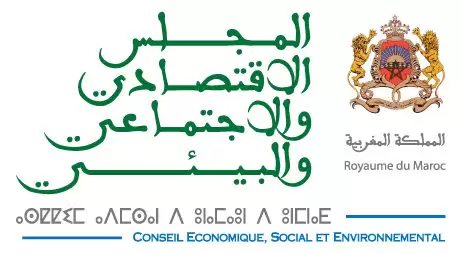
Synthesis
Considering the unsustainable linear patterns of production, consumption, and disposal, the Economic, Social, and Environmental Council has issued an opinion entitled “Incorporating circular economy principles in household waste and sewage management.”
There is significant evidence that this linear model is detrimental to the environment. It depletes natural resources, causes pollution, and accumulates waste, reducing job creation and growth potential.In this regard, the circular economy provides a promising alternative to meet these challenges while ensuring sustainable growth and creating employment and wealth.
There is no universally agreed-upon definition of the circular economy. Nevertheless, the United Nations defines it as “a model of production and consumption, which involves sharing, leasing, reusing, repairing, refurbishing and recycling existing materials and products as long as possible”.
The transition to a circular economy will address issues related to the environment and economic development, employment, and social concerns.
This opinion highlights the positive aspects of the circular economy that can benefit our country should its principles be adopted.
The ESEC identified two areas of high growth potential for Morocco: household waste(organic) recycling and treating and sewage reuse.
As outlined in the ESEC opinion, household waste management efforts are relatively modest, with a minor impact on recovery and recycling. Despite the substantial progress in the cleaning industry over the past few decades, household waste management continues to exhibit bulk collection and lack of sorting at the source. As a result, household waste recycling is not only challenging, but also expensive and unprofitable for private businesses.
While liquid sanitation has improved significantly, the rate of wastewater reuse remains low (the percentage of purified wastewater in 2020 is estimated at 51% for watering green and 17% for the industry).
As such, low reuse rates stemmed from the inadequate funding of the sanitation sector, decreased land availability, and insufficient regulations on sludge residuals and their disposal.
Given the average water supply per person of 650 m3 and the difference in supply across regions, the country must make the most efficient use of its water resources possible.
Based on this diagnosis, the ESEC proposes the following recommendations for implementing a national circular economy strategy:
– Develop a circular economy framework legislation and anti-waste legislation targeted at specific areas.
– Establishing a coordination body bringing all stakeholders together by the Ministry of Investment, Convergence, and Evaluation of Public Policies, based first on a sectoral and then on a territorial approach.
– Ensure prompt implementation and follow-up of “extended producer responsibility” (EPR) to enable:
- Adopting a polluter-pays approach;
- Holding producers accountable for collecting and treating the waste generated by their activities;
- Increasing taxes on non-recyclable pollutants and banning certain serious pollutants to reduce their economic competitiveness and decrease their appeal to producers.
-To condition any public financing of sectors and territories on adopting circular economy principles.
As for sewage:
– Review the political decisions that favored investment in mobilization (dams and desalination) rather than reusing, storing (rainwater), and water saving.
-Set national and territorial objectives for sewage reuse involving all stakeholders. A regulatory framework will be required to encourage polluters and consumers to reuse sewage. Besides, as part of establishing a competitive reuse market, it is also necessary to determine standards and costs sensitive to the entire water cycle.
– Ensure that sewage reuse is a priority for future Regional Multiservice Companies (SRM) missions and incorporate it into their business plans from the outset.
As for household waste:
-Incorporate waste recovery into the existing management contracts between local authorities and private companies (rather than having waste buried, burned, or deposited).
– Establish regional targets for reducing waste landfills to reach a “zero waste” goal.
Based on a participatory approach, the present opinion reflects wide-ranging discussions among various ESEC Board categories and a series of hearings conducted by key stakeholders. This opinion also incorporates citizens’ feedback from a consultation launched on the Council’s new digital platform for citizen participation, “Ouchariko.”



